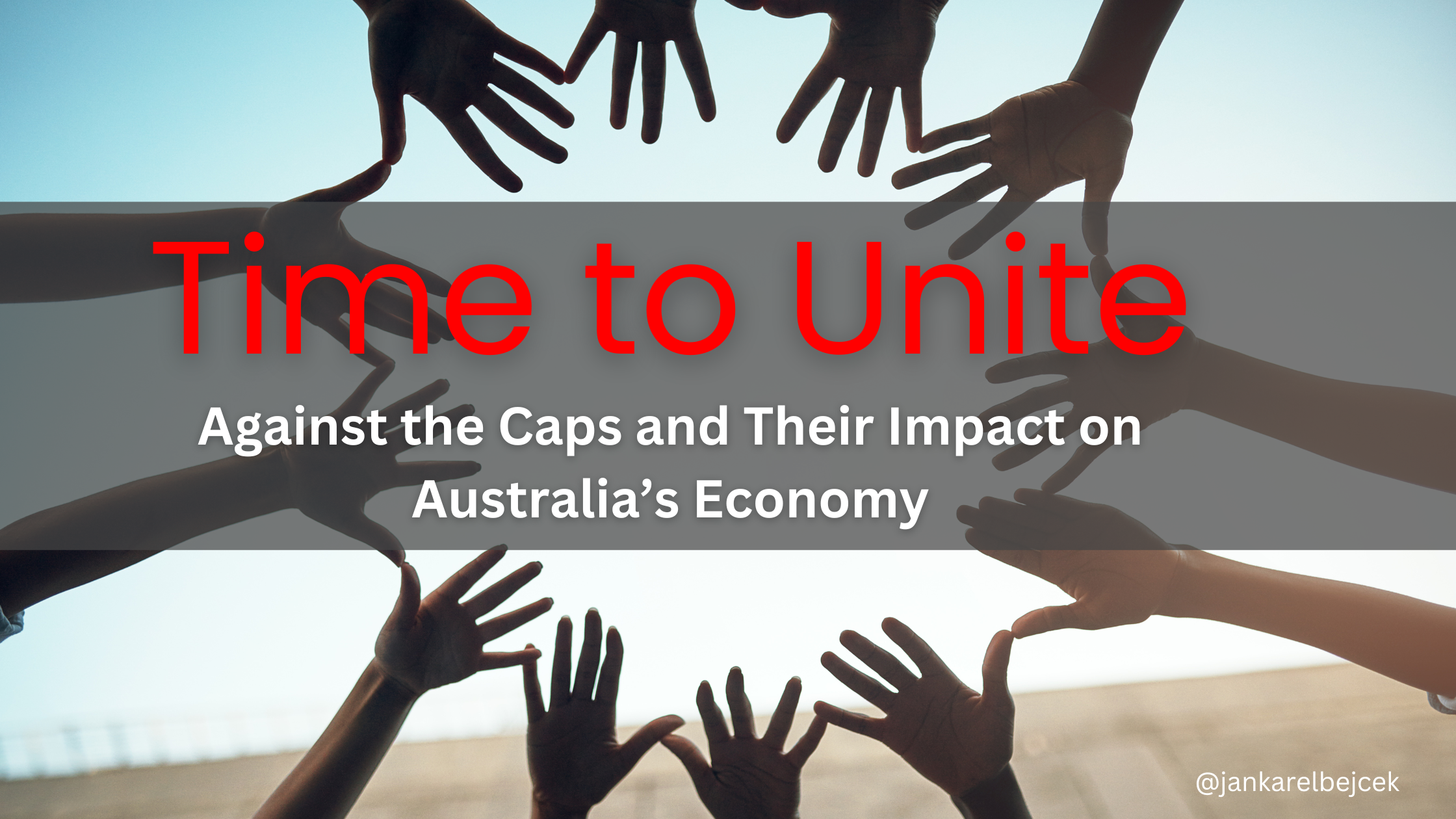It’s Time to Unite for the International Education Industry: Addressing the Student Caps and Their Impact on Australia’s Economy
The international education industry in Australia is under an unprecedented attack. Recent policy changes, particularly the introduction of caps on international student numbers, are not merely a move to rid the sector of unscrupulous operators or poorly regarded programs. Instead, these caps are symptomatic of a misguided attempt to overhaul an industry that plays a critical role in Australia’s economy. It is time to recognise the gravity of this situation and unite as a sector to prevent long-term damage.
The Flawed Logic Behind the Caps
On the surface, it may appear reasonable to place caps on international student enrolments to ensure quality and integrity in the education system. However, the logic behind the current approach is deeply flawed. These caps are being calculated based on historical data, ignoring the fact that providers have little control over many of the variables being considered. This creates a framework that shackles the ability of education providers to pivot, innovate, or adapt to changing market conditions.
More disturbingly, the new caps prevent institutions from altering their business models or recruiting domestic students to balance their enrolments. This rigidity has already begun to cripple many providers, particularly those that rely heavily on international students. It’s no longer about rooting out “Mickey Mouse courses” or unscrupulous players; it’s about survival for the entire sector.
The Macro-Level Impact: Australia’s Economy at Risk
The ramifications of these policies extend far beyond the immediate impact on education providers. International education is Australia’s second-largest industry, contributing billions to the national economy each year. When this sector suffers, it sends shockwaves through a multitude of related industries, from housing and tourism to retail and hospitality. The public, unfortunately, may not fully grasp just how interconnected international education is with the broader economy.
But it’s not just about education providers—small businesses across Australia will also be severely affected by these caps. The vast network of restaurants, cafes, retail outlets, and service providers that rely on the presence of international students will suffer immense losses. Small business owners, already grappling with rising costs and economic uncertainty, could face an existential crisis if student numbers fall sharply. The impact will ripple through every Australian community, from urban centers to regional towns.
A Dangerous Precedent for All Australian Industries
The potential passage of this Bill not only signals devastation for the education sector but also sets a dangerous precedent for other industries. If the government can reduce operations in one of Australia’s most vital sectors on a political whim, what’s to stop them from imposing similar restrictions on other industries? Today, it’s education—but tomorrow, it could be mining, manufacturing, or agriculture.
This arbitrary control over sectors of the economy undermines the very fabric of Australia’s renowned “fair go” ethos. Once, Australia was admired globally for its commitment to giving everyone a fair chance to succeed. Yet, with these policies, we seem to be abandoning this principle in favor of short-term, politically motivated decisions that benefit no one in the long run.
A Workforce Crisis in the Making
Beyond the financial implications, Australia faces a looming workforce crisis due to the decimation of international education. International students often transition into skilled workers, filling critical roles in sectors like healthcare, childcare, construction, and tourism. Australia is already grappling with significant skills shortages, and these shortages will only deepen as fewer international students flow into the workforce.
Nurses, childcare workers, construction laborers, and hospitality professionals are in short supply. The current caps make it impossible to fill these gaps quickly, and it may take years to rebuild the pipeline of talent. The government’s decision to cap international student numbers is short-sighted when viewed against the long-term needs of the Australian labor market.
The Need for an Industry-Led Review
The current policy framework must be reexamined urgently, with a forward-looking approach that takes into account the needs of the economy over the next 5 to 10 years. Policymakers need to understand that the issue is not just about protecting domestic workers or public universities. It’s about safeguarding Australia’s position in the global education market and ensuring the long-term sustainability of an industry that underpins much of the country’s economic success.
A comprehensive review led by industry stakeholders, including education providers, businesses that rely on skilled migration, and representatives from sectors like tourism and hospitality, is essential. This review must consider the evolving dynamics of international education, the growing demand for skilled labor, and the economic consequences of restricting international student enrolments.
Conclusion: A Call to Unite and Act
It’s time for the international education sector and its allies to unite in the face of these draconian caps. The future of one of Australia’s largest industries—and the broader economy—hangs in the balance. The caps, based on outdated data and shortsighted policies, must be reassessed. Otherwise, Australia risks plunging back into a pre-globalized economy, where growth is stunted, and opportunities are limited.
The damage will go far beyond education operators—small businesses, regional communities, and everyday Australians will feel the impact. If this Bill passes unchecked, other industries may soon find themselves under similar threats. Australia was once known for giving everyone a “fair go,” but with the introduction of such measures, that ideal seems to be disappearing.
The stakes are too high to ignore. Let’s act now, before the damage becomes irreversible, not just for education but for the broader Australian economy and our values as a nation.
#studentcaps #studyinaustralia #internationaleducation #educli





Leave A Comment